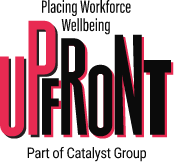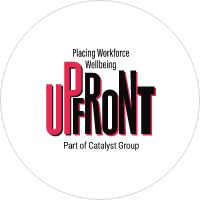The industrial sector has long been a critical driver of economic growth globally, yet it remains an arena fraught with challenges, especially for women. Factory workers, particularly women, often face a multitude of workplace issues that can affect their health, safety, and overall well-being.
Understanding these challenges is the first step towards creating a more inclusive and supportive working environment.
This blog explores the common problems experienced by women factory workers and discusses effective strategies to address them, focusing on enhancing the well-being of women factory workers through targeted well-being programmes.
Gender Discrimination and Inequality
One of the most pervasive issues faced by women in factory settings is gender discrimination. Women are often paid less than their male counterparts for the same work and are frequently overlooked for promotions. This discrimination extends beyond just wages and career progression; it often affects the day-to-day treatment of female workers, who may experience a lack of respect from colleagues and supervisors.
Addressing the Issue:
To combat gender discrimination, it is essential for companies to enforce equal pay for equal work policies strictly. Well-being programmes for factory workers should include training sessions that promote gender sensitivity and inclusivity, ensuring that all employees understand the importance of equality in the workplace. Additionally, establishing clear, confidential channels for reporting discrimination can help protect those who are most vulnerable.
Health and Safety Concerns
Women factory workers often encounter specific health and safety risks, including exposure to harmful chemicals, repetitive motion injuries, and ergonomic challenges. Furthermore, the lack of adequate maternity leave and facilities can exacerbate health issues, particularly for pregnant women or new mothers.
Addressing the Issue:
Improving workplace safety must be a priority. This involves regular health and safety audits, the provision of proper personal protective equipment (PPE), and training programmes designed to educate workers about potential hazards. Well-being programmes should also support reproductive health, providing access to medical consultations and modifying tasks for pregnant workers to avoid high-risk activities.
Harassment and Psychological Stress
Harassment remains a significant challenge, with many women reporting incidents of verbal, physical, and sexual harassment at work. This not only affects their mental health but also reduces their overall productivity and job satisfaction.
Addressing the Issue:
Creating a zero-tolerance policy towards harassment is crucial. Workshops and training programmes that focus on anti-harassment policies can educate workers about respectful behaviours. Support systems, such as counselling services and stress management workshops, should be part of well-being programmes for factory workers, offering a safe space for women to discuss their concerns and find support.
Lack of Flexible Working Conditions
Factory work is often characterised by rigid schedules that do not account for the personal responsibilities of workers, particularly women, who may juggle work and family commitments. This lack of flexibility can lead to high stress and burnout.
Addressing the Issue:
Companies can introduce more flexible working hours and consider part-time or job-sharing options where feasible. Well-being programmes could advocate for and help implement policies that consider the life circumstances of all employees, especially working mothers, thereby supporting a better work-life balance.
Limited Access to Professional Development
Another significant barrier is the limited access to training and professional development for women, which hampers their ability to advance in their careers. This is often due to the pervasive stereotypes that underestimate the capabilities of women, especially in technical or high-skilled roles.
Enhancing Communication and Inclusivity
A common yet often overlooked challenge is the lack of effective communication channels within factories. Women, in particular, may feel their voices are not heard, which can lead to a sense of isolation and disenfranchisement. It’s vital that management fosters an inclusive culture where all workers feel they can express their opinions and concerns without fear of reprisal.
Addressing this issue:
Effective communication begins with the development of strong internal communication strategies that encourage feedback and dialogue among all levels of staff. Regular town hall meetings, suggestion boxes, and inclusive decision-making processes can help bridge the communication gap. Additionally, well-being programmes for factory workers can include training in communication skills, aiming to empower women to participate more actively in workplace discussions and decision-making processes.
Promoting Workforce Diversity
Workforce diversity is not just a metric to be achieved; it is a strategic advantage that can drive innovation and improve team dynamics. However, women often remain underrepresented in factory settings, particularly in leadership positions. This underrepresentation can perpetuate a cycle of inequality and hinder the progress towards a diverse workplace.
Addressing the Issue:
Organisations should ensure that all workers, regardless of gender, have equal access to training and development opportunities. Well-being programmes for factory workers can include leadership training and skills development workshops specifically tailored to empower women. Mentoring programmes can also be an effective strategy to encourage women to pursue higher roles and responsibilities.
The challenges faced by women factory workers are complex and varied but not insurmountable. Addressing these issues requires a concerted effort from all levels of an organisation. By implementing comprehensive well-being programmes that specifically target the unique needs of women, companies can not only enhance the well-being of women factory workers but also improve productivity and employee retention. These initiatives not only contribute to a fairer, more equitable workplace but also set a standard for industry-wide practices, paving the way for a more inclusive and progressive industrial environment.


